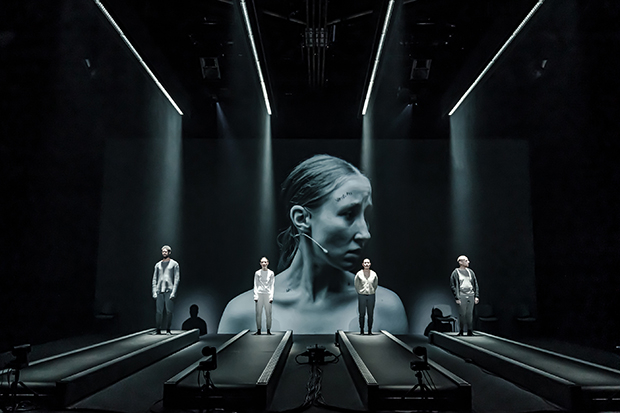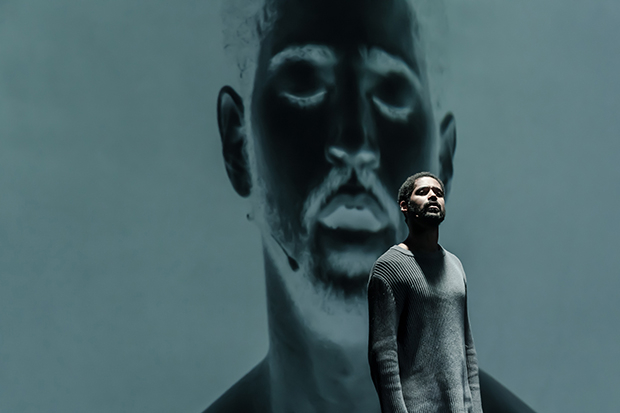Review: A Bleak, Yet Oddly Hopeful, Crave for the Covid Era
Chichester Festival Theatre revives Sarah Kane’s bleak drama and streams it across the world.

(© Marc Brenner)
This past Saturday felt a little like the "before times." It was a beautiful fall day in New York City, the sun was shining, and just as a major news story was breaking, I was taking my seat in a dark room for a matinee. It made me oddly nostalgic — this exact thing would happen quite a lot back when we could gather in person, but this time, the dark room was my home office, the news story was Joe Biden and Kamala Harris's election, and the play was one I've wanted to see for quite a while, Crave by Sarah Kane.
I'm a Kane completist, or at least, I try to be, given that her five plays are rarely, if ever, presented in New York City. Of her catalogue, I've seen the bookends: 1995's terrifying Blasted, a brutal and violent drama that jumpstarted her reputation as a playwright to simultaneously admire and condemn, and 2000's heartbreaking 4:48 Psychosis, a portrait of despair first produced a year after her suicide at age 28. Crave, first produced in 1998, is her second-to-last work and a departure from her usual style; a lyrical, Beckettian text with no stage directions, plot, character names, or any indication of how it should be staged. So notorious was her reputation at that point in her short career that Crave was actually written under a pseudonym so audiences wouldn't go into it with preconceived notions.
Saturday afternoon's Crave was its second-to-last performance at London's Chichester Festival Theatre, where it was originally scheduled to run pre-pandemic. It's a play that finds four people (played by Erin Doherty, Alfred Enoch, Wendy Kweh, and Jonathan Slinger) recalling their darkest memories as they try to understand their respective traumas, potentially ranging from murder to pedophilia, with emotions running the gamut from euphoric love to intense self-loathing. Crave is a bleak, yet clear-eyed, depiction of loneliness, and while I would not call it a particularly pleasant watch, it's one that feels oddly at home in this socially distant world, especially under the stark and imaginative direction of Tinuke Craig.

(© Marc Brenner)
Craig guides her quartet of actors into intelligent and wrenching performances that nicely convey the staccato rhythms of Kane's jagged-edged text. All four are socially distanced in this Covid-chic staging, slowly gliding back and forth on a set of moving treadmills by Alex Lowde that, when combined with the spectral movement by Jenny Ogilvie, perhaps symbolizes the characters moving back and forth between their bad memories. Lowde's plain costumes add another layer of depth, giving off the impression that they might be institutionalized, while Joshua Pharo's lighting adds a ghostly element, especially when the actors' faces are enlarged on a rear wall of ethereal video projections by Ravi Deepres. It really captures the isolation of these characters in a simple but nuanced way.
For a lot of people, Crave will be a hard sit. It doesn't provide easy answers (it doesn't provide any answers, really), and the bleakness of it all probably isn't something most people want to experience right now. But I found there to be some degree of hope in the knowledge that we all have crosses to bear. While the search for meaning in the solitude of our head isn't easy, we shouldn't give up, especially if we can make at least one connection.







